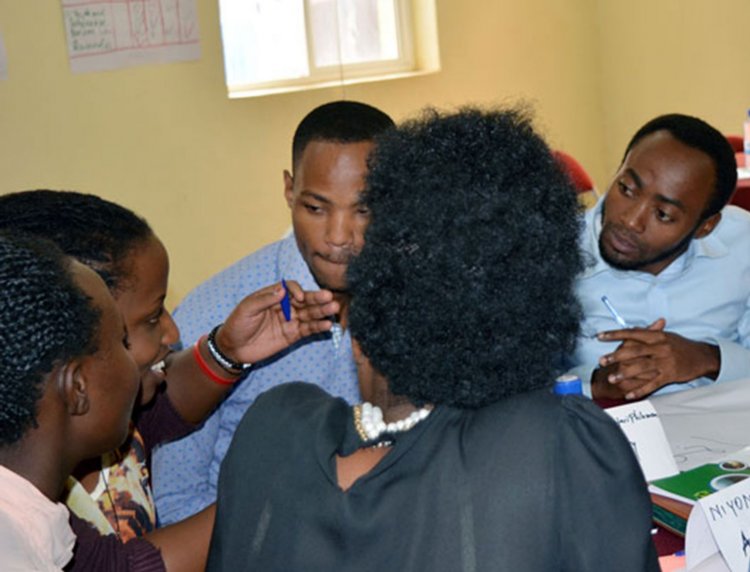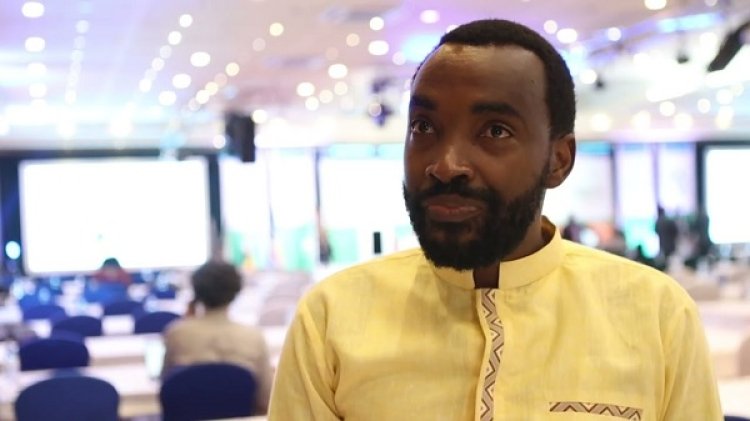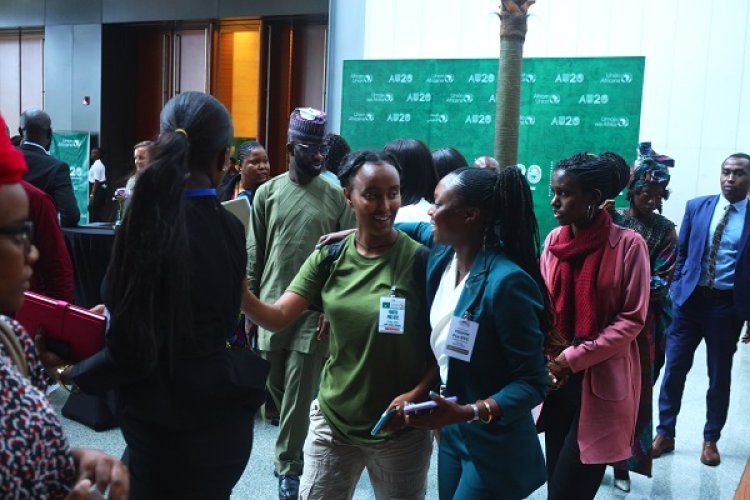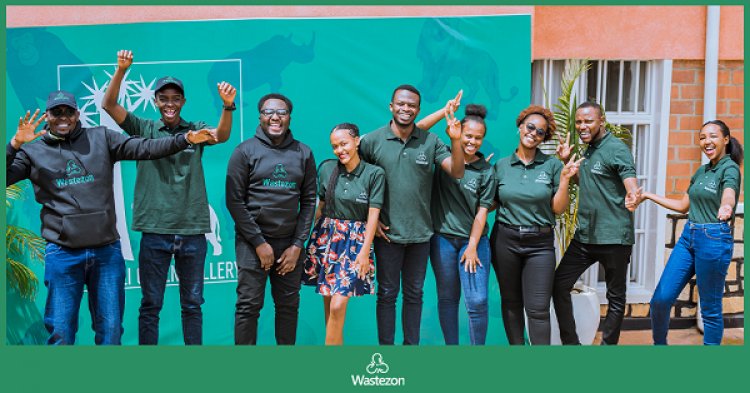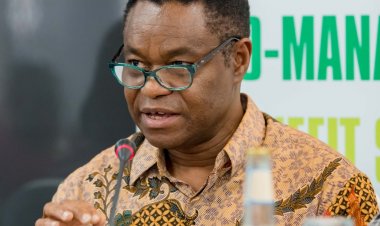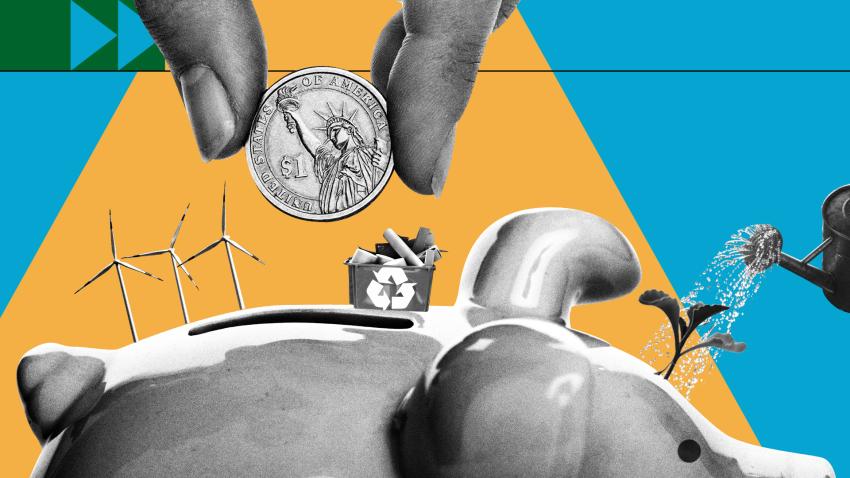As youth activism on climate change matters gains momentum across the African continent, young people in Rwanda have joined the bandwagon to demand more involvement in policies and climate discourse to meet the needs of the next generations.
In particular, the young people with climate projects want prevailing limitations in access to funding removed to scale up youth-led initiatives that are contributing to tackling the climate crisis in developing countries.
They cited constraints ranging from tough eligibility criteria and conditions that make it difficult for the youth to tap into the climate finance coming through international bodies and philanthropic organisations to vulnerable nations to help mitigate or adapt to climate change.
There are concerns that if unaddressed, these challenges could potentially leave many young people disengaged in the climate discourse and disconnect them from their responsibility as the next generation.
Also read: Germany commits $39.3m to Rwanda climate action, pledges support at COP
“Our worries are that the lack of engagement leave many young people disconnected, and potentially take part in causing even more harm to environment,” said Jean Claude Dusabimana, Executive Director at Nature Rwanda, a local youth-led organization.
Based in the rural Musanze District, the organization works with 20 schools across the country in projects aimed at building the youth capacity to be able to claim their rights from duty bearers and ensuring their needs and aspirations are considered in climate mitigation policies.
Our worries are that the lack of engagement leave many young people disconnected, and potentially take part in causing even more harm to environment.
Jean Claude Dusabimana, Executive Director, Nature Rwanda.
“Our belief is that if adults fail to involve young people and children at all stages of the climate change fight, they will not succeed it and it will not be sustainable. The children and young people will be the most concerned by these policies in the future as implementers so their ideas should be considered. That’s what were are most pushing for through advocacy,” said Dusabimana.
Rwanda has a youthful population with more than 78 per cent being below 35 years of age according to the data of the fifth Integrated Household Living Conditions Survey (EICV) released in 2018.
Environment and climate change are yet to take strong roots in general education curricula.
But the country being among those most affected by climate change globally, astute young people have embarked on initiatives to tackle the crisis albeit with challenges.
Not accepted
On one hand, young people decry that they struggle to be accepted as actors who are coming up with ideas that can change situations, offer solutions and whose voice must be heard especially by those in positions of authority.
This makes their going difficult when it comes to sourcing funding for climate projects and initiatives, on the other hand.
Elisa Tumwesigye of Social Actions for Environment protection and Biodiversity conservation (SAEB), said this continues to lock many youth-led climate initiatives out of funding access, hence not making substantial impact or scale up.
The organization involves youth in conservation agriculture practices such as solar power irrigation schemes in arid areas of Eastern Rwanda where recurrent drought nearly eroded ability to adapt.
“Conditions in most funding opportunities include proof that applicants managed projects in the $100,000 to $600,000 range or $1 million in the past, which is not realistic in the context of most youth-led climate initiatives. There is need to make access to these resources easier for young people in climate vulnerable countries,” said Tumwesigye.
Eyes on COP27
While young people believe platforms like the ongoing UN climate negotiations in Egypt (COP27) should attend to these issues, they decried limitations around access and representation.
In particular, access problems were cited by the Loss and Damage Youth Coalition, an organisation which brings together Rwandans with hundreds other young people across Africa and globally to push for compensation to climate vulnerable countries.
Its leaders indicate that with extreme weather events such as drought, flooding and other climate vagaries having intensified over time in Rwanda, the effects in most instances cannot be avoided through just mitigation and adaptation.
The coalition has actively been pushing for the creation of a dedicated financial mechanism to address loss and damage, and intends to further draw attention of global leaders to these issues at COP27.
Also read: Road to ‘African’ COP27: Activists talk tough on climate reparations, injustices
Its communication coordinator Paul Chukwuma told Rwanda Post the major challenge has been financing to engage more youths and participate in global events like the COP, while some bureaucratic processes are required to attain the necessary documents to participate in these conferences.
“There is no structured way to address these challenges rather than sourcing painfully for opportunities to help address each of the highlighted challenges and connecting with more enablers within the climate change space. The implications of these are that global climate action neglected this on a large scale due to lack of advocacy,” said Mr. Chukwuma.
The organization has sent nine young people from Rwanda to this year’s UN climate negotiation in Egypt slated for 6-18 November.
~ This article was produced as part of the collaboration between Rwanda Post, GLIM and L’Écologiste to amplify youth initiatives and voices to mark COP27 as part of the African Union (AU) Media Fellowship.

